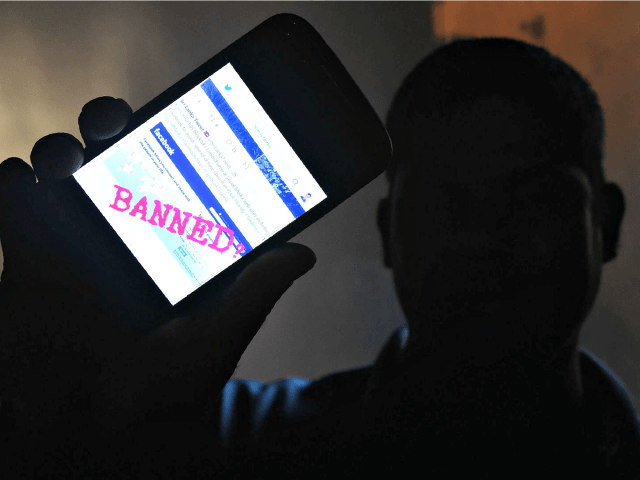Sens. Marco Rubio (R-FL), Kelly Loeffler (R-GA), Kevin Cramer (R-ND), and Josh Hawley (R-MO) sent a letter to FCC Chairman Ajit Pai, asking the agency to clearly define the criteria for which big tech companies can receive legal immunity for moderating content on their platforms.
The Republican senators wrote a letter to the Federal Communications Commission (FCC) after President Donald Trump signed an executive order, mandating that the Department of Commerce draft a proposal to the FCC, asking them to clarify provisions in Section 230 of the Communications Decency Act. The proposal would specifically target the “good faith” clause in Section 230 which grants tech companies immunity for filtering or removing content that is “obscene, lewd, lascivious, filthy, excessively violent, harassing, or otherwise objectionable.”
The Republican senators contended that big tech companies have increasingly become a threat to free speech on the Internet and that Silicon Valley has increasingly raised doubts if they are fostering a platform of open and free expression when they favor leftist views over conservative and alternative viewpoints. They wrote:
The unequal treatment of different points of view across social media presents a mounting threat to free speech. This Executive Order is an important step in addressing this form of censorship.
Section 230 of the Communications Decency Act shields social media platforms from the liability imposed on publishers when they act in “good faith” to restrict access to or remove certain objectionable materials. However, the protections afforded by Section 230 are not absolute or unconditional. While social media companies enjoy their special status under Section 230, it is questionable that they are living up to their obligations when they blur the lines between distributor and publisher by favoring one political point of view over another.
While the President has the means to push back on unfair treatment, we worry about everyday Americans who are sidelined, silenced, or otherwise censored by these corporations. Social media companies, whose protections come from their acting as distributors, not publishers, have increasingly engaged in partisan editorializing, censorship of Chinese dissidents, and a host of politically motivated speech policing. While these actions speak for themselves, companies continue to enjoy Section 230 protections due to a lack of clear rules and judicial expansion of the statute.
The senators noted that the “good faith” clause in Section 230 clause is “vague” and that courts have granted additional immunity for tech companies even when they “develop” content. They explained:
Social media companies have become involved in a range of editorial and promotional activity; like publishers, they monetize, edit, and otherwise editorialize user content. It is time to take a fresh look at Section 230 and to interpret the vague standard of “good faith” with specific guidelines and direction. In addition, it appears that courts have granted companies immunity for editing and altering content even though the text of Section 230 prohibits immunity for any content that the company “in part … develop[s].” These interpretations also deserve a fresh look.
Former FCC Wireless Bureau Chief Fred Campbell has contended in an interview with Breitbart News that “restricting non-offensive content the ICS operator doesn’t like” in effect means that they are making editorial judgments on content.
“We therefore request that the FCC clearly define the framework under which technology firms, including social media companies, receive protections under Section 230,” the senators concluded in their letter to Pai.
Sean Moran is a congressional reporter for Breitbart News. Follow him on Twitter @SeanMoran3.

COMMENTS
Please let us know if you're having issues with commenting.